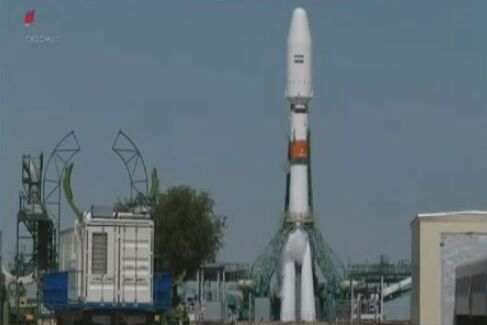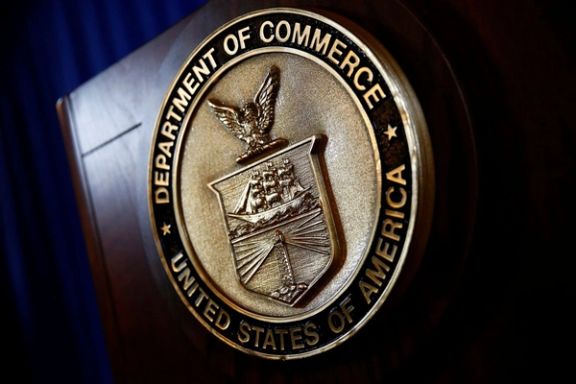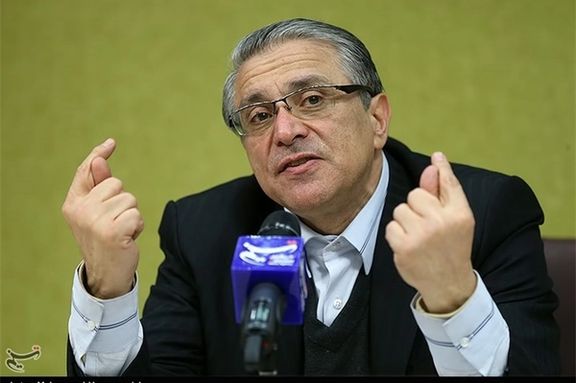Iranian Airlines Will Stop Flying To Malaysia Due To US Sanctions

Flights by all Iranian airlines to Malaysia will completely stop as of Saturday, August 23, due to impact of sanctions on refueling Iranian planes.

Flights by all Iranian airlines to Malaysia will completely stop as of Saturday, August 23, due to impact of sanctions on refueling Iranian planes.
Secretary of Iran's Aviation Companies Association Maghsoud Asadi-Samani told ILNA on Friday that the last Iranian flight to Kuala Lumpur will be operated by Mahan Airlines, which was the only airliner apart from flag carrier Iran Air with the capability of direct flights to Malaysia because of the long distance.
The Iranian company Mahan Air was sanctioned by the US in 2008 for links to the Quds (Qods) Force of Iran’s Revolutionary Guard.
Noting that Malaysian airports do not provide fuel to Iranian planes anymore, he said that fueling companies at Malaysian airports work with US companies, and these companies have been informed that they will be subject to punitive measures if they keep fueling the Islamic Republic’s planes.
Describing it as yet another blow that hit the country's aviation industry due to the US sanction, he said domestic airlines will lose the revenues of passenger transportation on this route, and “we will lose one of the bases in Southeast Asia.”
Before the Covid-19 pandemic hit the world, demand for this route was high, and two to three flights were made per week, but during the health crisis, flights to Malaysia were temporarily suspended, and after that, there was only one flight per week.

Iranian government spokesman Ali Bahadori Jahromi says the country plans to order three more versions of the Khayyam satellite with the cooperation of Iranian scientists.
In a tweet on Thursday, he said the stabilization process of the satellite, dubbed Khayyam after a 12th-century Persian polymath, was done successfully.
He added that Iranian knowledge-based companies will be able to use its images and data in various fields.
As Iran’s homegrown attempts at putting satellites into orbit have largely failed due to its technological limitations, Russia agreed to build and launch the Kanopus-V Earth-observation satellite that can resolve features as small as 3.9 feet (1.2 meters) on Earth's surface at a cost of about $40 million in a deal negotiated nearly four years. Iran claims it was designed by the country’s scientists but it is one of a series of satellites developed by the All-Russian Scientific Research Institute of Electromechanics.
Russia launched the controversial satellite into space Tuesday, August 9, from its Baikonur space station in Kazakhstan as planned.
The satellite sparked controversy last week when The Washington Post quoted two Western security officials as saying that Moscow intends to use the space platform for several months or longer, to enhance its surveillance of military targets for its war in Ukraine, and Iran may not be able to take control of the satellite right away.
Iran's Space Agency denied the report on August 7, saying the satellite will be fully operated and controlled by the Islamic Republic from inside Iran.

Iran’s IRGC-affiliated Fars news website has lashed out at Tehran chamber of commerce for “under-reporting” oil exports to China that hardliners take credit for.
The chamber of commerce regularly published trade statistics, but Fars angry at the low figure cited in the latest report asks why the organization is allowed to even speak about oil exports to China.
The figures published by the chamber of commerce show just $350 million in crude shipments to China through the end of May this year. Fars says why the chamber of commerce does not look at information from international sources that show hundreds of thousands of barrels of oil being shipped.
The answer should be obvious for anyone familiar with the issue. Tehran Chamber of Commerce has used official figures from Chinese customs, not estimates of illicitly shipped oil. China reports a fraction of the Iranian oil it buys. Most of its unreported imports come from brokers, who often mix the crude with cargos from other countries, falsify documents and hide the origin of the oil.
It is not clear if Fars was not aware of this or simply wanted to put pressure on everyone to say that the hardliner government in Tehran has been successful in boosting oil exports.
After the United States withdrew from the 2015 nuclear deal and imposed sanctions on Iran, China never stopped buying Tehran’s oil, but quantities in question were negligible until the end of 2020. At that time, the newly elected US president Joe Biden announced that he intended to return to the nuclear deal with Iran known as JCPOA. Soon followed the start of talks with Iran in Vienna and Chinese imports of Iranian oil took off.
The Biden administration apparently either did not want to enforce the sanctions while nuclear talks were taking place, or simply could not stand up to China.
By the beginning of 2022, Iran was selling at least 750,000 barrels of crude per day, mostly to China, according to multiple industry sources monitoring shipments. But official Chinese figures show an average of just 22,000 barrels being imported from Iran, and that is what the chamber of commerce has reported.
Although Iran keeps the quantities and destinations of its oil exports confidential, Fars, which often speaks for the Revolutionary Guard, said that China “is the main buyer of Iran’s oil during sanctions.”
One possible reason for the sensitivity shown by Fars to the issue could be reports in May and June saying that cheaper Russian oil has been competing with Iranian exports to China. Some sources said that in May Iran’s shipments halved as Russia offered larger discounts to China after international sanctions on its oil exports.
The hardliner government in Tehran confronting the worst economic crisis in the 43-year history of the Islamic Republic, keeps highlighting its success in selling more oil despite US sanctions. The claim seems to be true, but the economic situation remains dire because China does not pay much cash and sends goods that does not help the government’s cashflow problem.

Iran’s Foreign Minister Hossein Amir-Abdollahian and the European Union foreign policy chief discussed Monday the latest round of Vienna nuclear talks that ended without an agreement.
In phone call with Josep Borrell, Amir-Abdollahian reiterated that all parties involved in the talks must take serious steps toward reaching the final text of an agreement, while four days of talks in Vienna ended with a “final” text presented by the EU to all parties.
Iran insists that the text offered for renewing the 2015 nuclear deal is not a final agreement but European officials described the document to journalists as a ‘take it or leave it’ offer for both sides. American and Iranian diplomats left Vienna Monday after the European chair of talks offered a fresh and “final” text for renewing the deal.
“Iran’s views and considerations on the ideas offered by [Borrell’s deputy] Enrique Mora have been conveyed to him and all parties [to the deal] are expected to show seriousness and resolve in order to achieve the final text of the agreement,” Amir-Abdollahian said.
Expressing hope that the path to a final agreement would be paved through realism, he added that any final agreement must meet the rights and interests of the Iranian nation and guarantee sustainable and effective removal of sanctions on the Islamic Republic.
According to IRNA, Borrell said he believes that relative progress has been made during the latest round of the talks, which he described as positive. Borrell also said he would continue efforts to bring the viewpoints of all parties closer to reach a good result.

The US Department of Commerce has charged China’s largest telecommunication company Far East Cable of helping another company hide its dealings with Iran in violation of sanctions.
According to a document released on Monday, the Bureau of Industry and Security Office of Export Enforcement issued an administrative charging letter against Far East Cable on July 29, 2022.
"The Charging Letter alleges that Far East Cable signed contracts with Zhongxing Telecommunications Equipment Corporation (ZTE), and Iranian telecommunications companies to deliver US-origin equipment to Iran as part of an effort to conceal and obfuscate ZTE’s Iranian business from US investigators," the document read, charging Far East Cable with 18 violations of Export Administration Regulations.
From September 2014 to January 2016, Far East Cable served as a cutout between ZTE which was under investigation by the US government for connections with Iranian telecommunications companies.
In March 2017, ZTE pleaded guilty for its conduct related to these charges and broader violations of US export controls. ZTE paid a combined penalty of $1.19 billion in criminal and administrative fines at the time.
In July, the US Treasury issued sanctions on a new array of individuals and entities that help the Islamic Republic of Iran sell its petroleum and petrochemical products, and in June, the US sanctioned several Chinese, Emirati and Iranian firms over exporting the country’s petrochemicals.

An IRGC-linked news agency has slammed a former diplomat for suggesting that Iran should balance its foreign policy by having relations with both the US and Russia.
Nasser Nobari, a former Iranian diplomat, told President Ebrahim Raisi in an open letter that Iran’s politico-economic interests would be best secured if the country adopted a foreign policy of “positive equilibrium and independent multilateralism” like India, that is, to maintain good relations with both The United States and Russia.
In a commentary entitled ‘Balanced Foreign Policy or Positive Balance Policy’ Saturday, Fars news agency slammed Nobari for suggesting the adoption of ‘positive equilibrium’ as the most suitable approach in Iran's foreign policy rather than the so-called ‘balanced foreign policy’ adopted by the government which excludes any relations with the US and focuses on relations with neighboring countries and the ‘East’.

“Does the said person believe … that the US is changing its Middle Eastern policy and wants to entice Iran [to have diplomatic relations] by increasing rapport with Iran and reliance on complex diplomacy towards the Zionist regime, Arab countries, and Iran?” the commentary asked.
It went on to stress that “the relationship between the World Arrogance (Western powers) led by the United States with the Islamic Republic is a zero- sum game … and will definitely not change”.
The Fars commentary went on to argue that relations with the United States would only be possible if its political system “collapses and gives way to an anti-imperialist or at least a non-Imperialist system”.
The policy of relying on Asia or the East, particularly China and Russia, was promulgated by Supreme Leader Ali Khamenei in 2018, with the catchphrase, “Looking East”.
"We should look East, not West. Pinning our hope on the West or Europe would belittle us as we will have to beg them for favors and they will do nothing," Khamenei said in a speech in October 2018.
In his letter, Nobari who served as Iran’s ambassador to the Soviet in 1980s said the recent visit of Russian President Vladimir Putin to Iran, and the US envoy Robert Malley’s suggestion to Iran not to “opt for a position of relative dependency on Russia” indicate that both superpowers are eager to entice the Islamic Republic to choose them over the other.
“It is the first time in the past three centuries that Iran has and can make a choice and it's the superpowers that are competing with each other to bring Iran to their fold rather than dictating or imposing their decisions on Iran as they did in the Tehran Conference [during the 2nd World War],” he wrote.
The former diplomat also warned that not using this opportunity could constrain Iran’s influence in the international community and backfire as a threat.
A similar view was expressed recently by former senior conservative lawmaker, Ali Motahari, who said ‘Looking East’ should not be tantamount to distancing Iran from the West. “We need to maintain relations with both sides and take advantage of the rivalry between them. However, cutting all ties with the West would not serve the nation's interests," he said in an interview with Khabar Online.
The conservative Jomhouri Eslami newspaper on August 4 criticized the foreign ministry spokesman Nasser Kanaani for being overjoyed by the recent quarrels between Beijing and Washington over Nancy Pelosi’s visit to Taiwan and taking sides with China.
“How does a neutral policy harm us in such disputes?”, an editorial in the newspaper asked. “Doesn't Neither East nor West mean not to take sides in the disputes between two domineering powers?”
‘Neither East nor West’ was the foreign policy approach promulgated by the founder of the Islamic Republic Ayatollah Ruhollah Khomeini and was Iran's official foreign policy motto until ‘Looking East’ took its place.